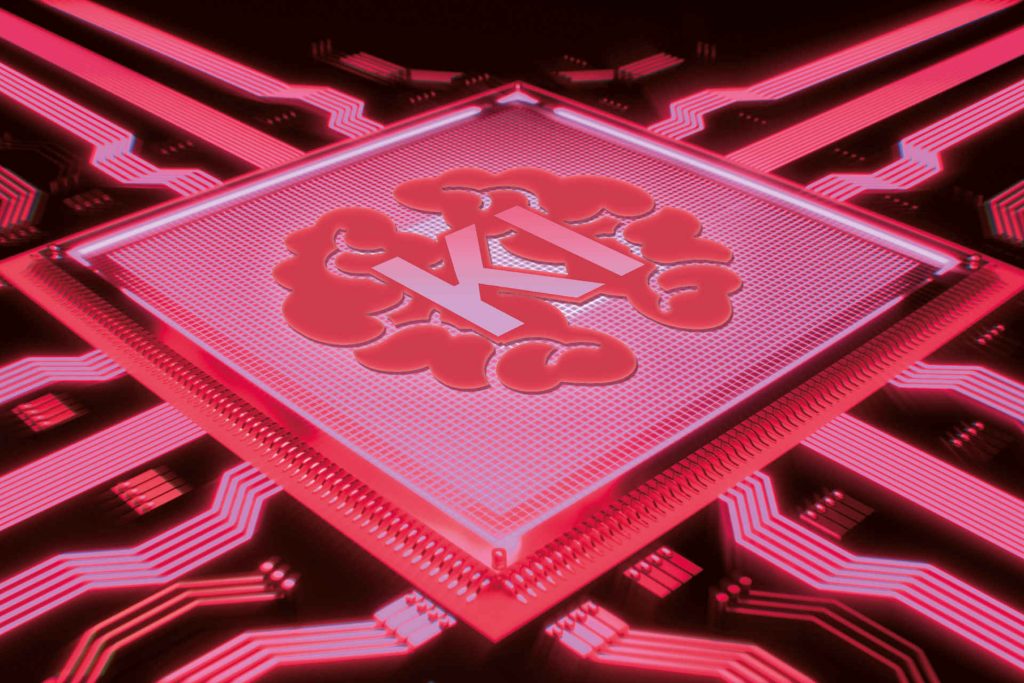
A new service employee is wanted. The position needs to be filled urgently, time is short – and the application arrives at half past midnight. Not by email, but via WhatsApp. The first questions are answered by an AI-supported chatbot, and the date for the trial period is suggested automatically. Everything runs efficiently, quickly and seemingly without any human intervention.
Such processes are no longer a future scenario, but reality. But this is precisely where the question arises: How much should AI be allowed to decide on its own – and when is human control necessary? A new area of tension is emerging between automation and responsibility, which must be handled with sensitivity, especially in labor-intensive industries such as catering and food production.
One of the biggest misconceptions about AI is the belief that it is neutral. However, algorithms are based on training data, which can contain biases or distortions. Anyone who believes that AI is flawless is mistaken. The goal must therefore be to make decisions comprehensible – for example, by disclosing criteria or weightings. Companies should therefore rely on systems that are designed in such a way that processes are transparently visible and documented. In addition, so-called “human in the loop” features then secure the final decision. The AI makes a recommendation – but humans have the final say. This not only creates trust, but also ensures fairness and quality.
Companies must not relinquish control, especially in sensitive areas such as recruiting. AI is a tool – and when used correctly, it is a real superpower for HR and management. It does not replace people, but it significantly expands their capabilities. However, responsibility for its use also lies precisely there. It is therefore crucial that companies define clear responsibilities, document decision-making processes, and be able to intervene manually if necessary. In the event of incorrect decisions or data processing, there must be options for correction – also to be on the safe side in terms of liability law. Trust can only be established where processes remain transparent, traceable, and correctable.
In practice, employees are initially skeptical about AI. The idea that a machine is making decisions about people makes many people uncomfortable. Open communication helps here. Explaining where and how AI reduces the workload—for example, by answering frequently asked questions or automatically scheduling appointments—alleviates fears and creates acceptance. Teams will then see that AI does not take away work, but rather creates space for more important tasks. Control remains with the HR team, and communication becomes faster and more reliable – even via channels such as WhatsApp or Microsoft Teams.
AI offers great potential, especially in the food and beverage industry, where many employees do not have a traditional office workplace and time pressure is high. Today, applications can be initiated via smartphone and chat, relevant information can be retrieved in a matter of minutes and processed directly – even in multiple languages. This not only lowers barriers for applicants, but also speeds up the process enormously.
For example, companies that allow applications via WhatsApp report an 80 percent increase in the number of applicants. This shows that low-threshold, digital processes make all the difference. In addition, AI-supported communication and automation eliminate time-consuming coordination in advance. This allows HR to focus on what matters: getting people excited about work – not bureaucracy.
The future belongs to collaboration between humans and machines. Fully autonomous AI would fail in many human areas, such as empathy, fairness, and diversity. As an intelligent co-pilot, however, it can effectively support HR processes and take them to a new level. In recruiting, AI will play an even greater role in matching and suggestions in the future – for example, through semantic analysis or contextual understanding. Conversations with AI assistants by telephone are also conceivable. Nevertheless, responsibility remains with humans.
Artificial intelligence must not be an opaque black box. Only if it is developed in a comprehensible, ethically sound manner with a clear focus on people can it reach its full potential. This is especially true where trust is the basis of every relationship – in the contact between employers and future employees.

There is a tension between digital progress and emotional hospitality that is redefining the restaurant industry. AI, automation, and data-based processes are changing not only workflows, but also attitudes, communication, and expectations. What was once considered a gimmick is now becoming a strategic necessity. And perhaps the most important question of our time: How can humans remain relevant in a world that is becoming increasingly digital?
The Austrian brand Kumanu shows how circular thinking can be applied in everyday life—and makes doing without plastic both practical and aesthetic. With its “Frischefritz” beeswax wraps and ‘Krümelkarl’ and “Pausenpaul” bread and snack bags, it provides the industry with a well-thought-out solution for keeping food fresh for longer – without any plastic or aluminum foil.
The products are made from GOTS-certified organic cotton, organic beeswax from Austria and Germany, and tree resin from traditional pitch production – a combination that has an antibacterial effect and guarantees natural durability.
Leonardo Hotels is expanding its commitment and turning World Cleanup Day 2025 into a European movement: Employees from 140 hotels in 12 countries are participating in cleanup campaigns – from Berlin to Bucharest, from London to Rome. Instead of a single day, the period has been extended to ten days to allow as many teams as possible to participate.


A new service employee is wanted. The position needs to be filled urgently, time is short – and the application arrives at half past midnight. Not by email, but via WhatsApp. The first questions are answered by an AI-supported chatbot, and the date for the trial period is suggested automatically. Everything runs efficiently, quickly and seemingly without any human intervention.
Such processes are no longer a future scenario, but reality. But this is precisely where the question arises: How much should AI be allowed to decide on its own – and when is human control necessary? A new area of tension is emerging between automation and responsibility, which must be handled with sensitivity, especially in labor-intensive industries such as catering and food production.